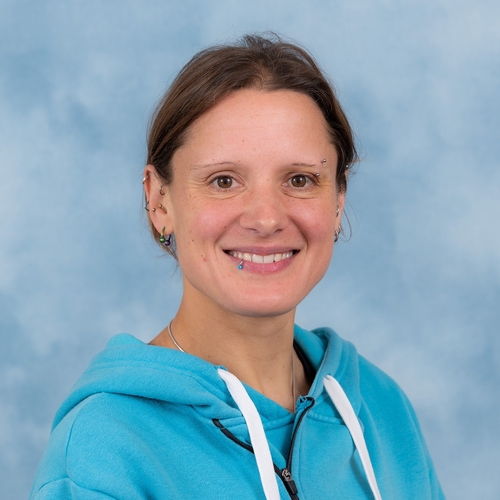Dr Helen Marshall

Lecturer
Contact Details
- Email: hem@aber.ac.uk
- Office:Z2.02 Zoology Extension Edward Llwyd Building
- Phone: +44 (0) 1970 8445
- Research Portal Profile (https://research.aber.ac.uk/en/persons/a3c632a8-35fc-4c55-86f8-37c1f5c2cbb2)
My Ph.D. covered several aspects of nudibranch (Mollusca: Gastropoda) ecology. For the first time the parasitic Splanchnotrophid, Splanchnotrophus willemi, was discovered infecting Ancula gibbosa at Mumbles, Swansea. The population genetics of the polycerid Thecacera pennigera was investigated from three South Wales populations using the mtCO gene. Settlement preferences and metamorphosis in the anaspidean, Akera bullata, from the Fleet lagoon in Dorset were investigated. The internal anatomy of A. gibbosa was described; and using histology, spermatogenesis and oogenesis was investigated in five species of nudibranch mollusc common to Mumbles, Swansea, UK.
- AB1 Practical Skills for Biologists (BR01220)
- AB2 Organisms and the Environment (BR01440)
- AB1 Comparative Animal Physiology (BR16720)
- AB1 Marine Biology (BR22620)
- AB2 Aquatic Botany (BR25820)
Module Coordinator
- AB1 Communication Skills (BR01520)
- AB2 Fish Biology, Fisheries and Aquaculture (BR33220)
- AB1 Genetics, Evolution and Diversity (BR17120)
- AB1 Invertebrate Zoology (BR25420)
- AB1 Marine Biology (BR22620)
- AB2 Microbial and Plant Diversity (BR19920)
- AB2 Organisms and the Environment (BR01440)
- AB1 Practical Skills for Biologists (BR01220)
- AB1 The Biosphere (BR13210)
- AB2 Wildlife Conservation (BR34520)
Lecturer
- AB1 Communication Skills (BR01520)
- AB1 Evolution and the Diversity of Life (BR14310)
- AB2 Fish Biology, Fisheries and Aquaculture (BR33220)
- AB1 Integrated Year in Industry (BRS0060)
- AB1 Invertebrate Zoology (BR25420)
- AB1 MBiol Research Project (BRM2860)
- AB1 Marine Biology (BR22620)
- AB1 Molecules and Cells (BR01340)
- AB2 Organisms and the Environment (BR01440)
- AB1 Practical Skills for Biologists (BR01220)
- AB1 Research Methods (BR27520)
- AB1 Skills for Wildlife Scientists (BR15720)
- AB1 The Biosphere (BR13210)
- AB2 Wildlife Conservation (BR34520)
Tutor
My main area of interest lies in nudibranch biology, in particular using molecular techniques to investigate phylogenetics and population genetics. There is much uncertainty regarding the taxonomy of the Nudibranchia, the Family Goniodoridiae is no exception to this. By using molecular DNA techniques and aspects of their morphology, I aim to investigate the systematics of this Family.
Many nudibranch species are annual semelparous organisms which produce planktotrophic larvae, consequently they are often only found during particular months of the year. We still do not know the importance of larval dispersal within and between populations found around the UK. Using molecular techniques, I am hoping to continue my Ph.D. work investigating the population genetics of T. pennigera both around the UK and in populations recently discovered abroad.
Other areas of interest include parasitism in nudibranch molluscs. The significance of the relationship between the boreo-mediterranean genus Splanchnotrophus spp. and their nudibranch hosts is unknown. I am hoping to continue to investigate the behavioural and physiological affects these parasites have on their hosts.
In: Diversity and Distributions, Vol. 26, No. 11, 16.10.2020, p. 1551-1565.
Research output: Contribution to journal › Article › peer-review
